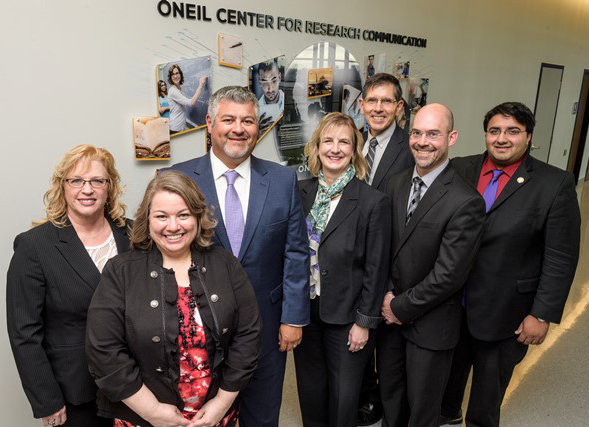How an English Major Succeeded in a STEM Field

STEM jobs are in high demand, while STEM professionals can be in short supply. English major Brandy Foster explains how you can break into a STEM field, even with a background in humanities.
I’d been intending to get my doctoral degree in 19th century British literature. I love Jane Austen—I thought I was going to be an Austen scholar and there’s a lot about that life that would still appeal to me—but a career-altering experience made me take a different path.
When I was an undergraduate English major at Wright State University, I was recruited by a mechanical engineering professor who had a really successful and prolific graduate research group, many of whom were non-native English speakers because they were international graduate students. And he was really frustrated that he was spending way too much of his time trying to correct language in proposals and dissertations and journal articles, and that wasn’t his strength or his interest, so he recruited me from the writing center at the university.
I was embedded in that group for a few years and I learned informally a lot of the genres of technical writing, and how to find my way in this really unfamiliar landscape of STEM. I had no prior inclination of working with mechanical engineers, so that experience changed the entire trajectory of my career. I was able to land that first job after graduating with my master’s as the proposal writer for the College of Engineering and Computer Science because by that time I really understood and excelled at writing proposals to the National Science Foundation and the Department of Defense.
I found my place by demonstrating the value that someone who has a humanities background can bring to STEM and ultimately ended up as a senior lecturer in the department of computer science and engineering. Here’s how you can too:
Find Your Place
I wasn’t a computer scientist or engineer. I didn’t know how to program, and I wasn’t proficient in math. But I understood the social implications of STEM and technology. And I also was really attracted to the type of innovation that they do in computer science and engineering. It all seemed so cutting edge, and so I was able to model that in my own way and innovate within my job, and in what has turned out to be really, really fun initiatives.
Think Critically
You really have to understand how to attack a project or a problem. Imagine that you’re in an unfamiliar landscape—if you’re an English major, that might be a STEM topic. Or if you’re an engineer, that might be something related to medicine. We train our students on how to draw on the skills from their individual programs that cut across communication—problem-solving, critical thinking, and empathy are really huge.
Be Sensitive
STEM is significantly different from the humanities. The culture is different, the language is different, the genres are different, and the people are different. Certain personality types gravitate toward one or the other. So I think it’s having that sensitivity to cultural differences that we all should have and whatever way we engage with something that’s unfamiliar to us. So a high degree of sensitivity and empathy and then also confidence in our own ability to contribute.
Know Your Value
When we’re making a big switch, we might focus more on what we might perceive as our challenges, because we’re not the same as the people inhabiting that unfamiliar space. English majors are not the same as an engineer. But instead of focusing on the ways that we’re different, I think it was really important for me to understand what I had to contribute. My diverse perspective from theirs was something that could benefit the organization, and vice versa—I had a lot to learn from them as well. So I think that’s really important, just that sensitivity to cultural differences and that willingness to take that kind of risk.
Check out more Top Articles on HERC Jobs.
Brandy Foster is concurrently the executive director of two major centers, The ONEIL Center at Wright State and the Emergence Center at the university’s foundation, and a senior lecturer in the Department of Computer Science & Engineering at Wright State University, where she earned baccalaureate and master’s degrees in English Language & Literatures.
